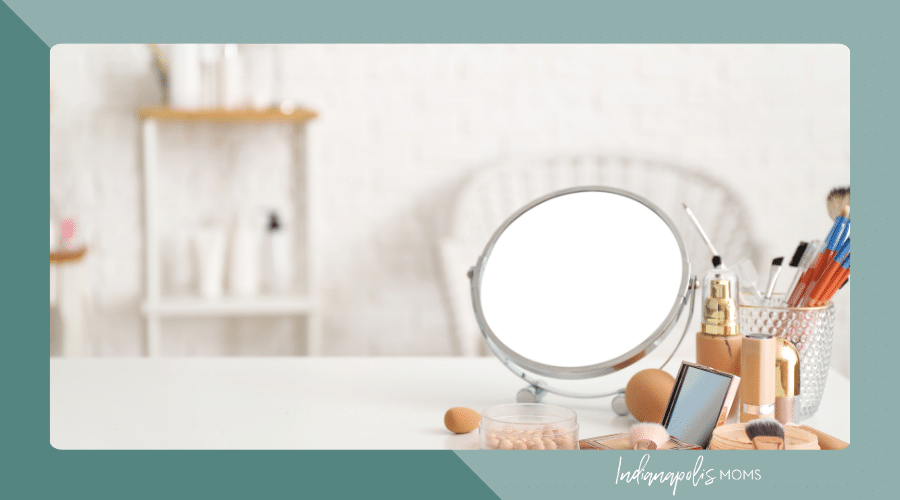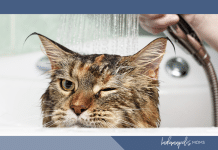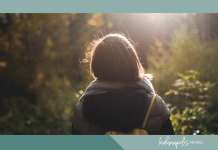 Pretty privilege is something you often recognize when you benefit from it. When I reached the age of fourteen, the shift was noticeable. Doors would be opened, and double-takes were given. Free appetizers, drinks (from that table over there), or similar perks became more frequent. If I were with my sisters or friends, it was often amplified.
Pretty privilege is something you often recognize when you benefit from it. When I reached the age of fourteen, the shift was noticeable. Doors would be opened, and double-takes were given. Free appetizers, drinks (from that table over there), or similar perks became more frequent. If I were with my sisters or friends, it was often amplified.
One of the wildest memories of pretty privilege happened when I was 19, the summer after freshman year. I was driving with friends in a beach town where I worked for an art company. We were blaring the radio loudly and singing with the windows down. It was the definition of carefree. Suddenly, one of us spotted flashing lights. We quickly pulled aside, slightly afraid because we were definitely flooring the gas to get to the beach before sunset. I don’t remember if I was driving or shotgun, but I know the two of us in front were scared. The officer informed us we were driving 21 miles over the speed limit. We explained that we weren’t from the area and had forgotten to check the signs. Our punishment for such a high-speed infraction? A smile and a warning.
As I aged, I began to place less importance on my looks. I didn’t want to carry the pressure of always feeling like I had to be polished or put together. During grad school, I stopped applying makeup daily and styling my hair. Over time, I took pride in my indifference toward appearance. I remember times where I would judge people who seemed to try too hard. It wasn’t until my own looks began to fade that I recognized how deeply I had absorbed society’s obsession with youth and beauty.
Becoming pregnant and then a mom definitely changed things. Being pregnant often changes the focus from you to the child you carry. I tried not to focus on the physical changes, but postpartum was tough each time, mentally and physically. That whole “bounce back” pressure felt both cruel and impossible. Carrying a child changes you and your body, no matter what you do. Wrinkles that didn’t disappear after a smile or a laugh crept in.
Then, gray started popping up around my face, especially after my second child. I had told others I was excited to get older. I always posted my age or told the number when asked, finding pride in making it through another “in the trenches” parenting year. Medications brought 40 pounds on or off, depending on what I was taking or tapering off of. People commented. I worked out and ate reasonably well either way. I ran a 5K and marveled that it was harder than the longer races I had run before having a baby. I biked in a triathlon relay. I learned to shrug off comments about my body. I had two little boys. I wanted to stay healthy for my family and our future, not to be a size two.
However, an unexpected reminder of my age and the loss of my pretty privilege jarred me. I had just left a funeral visitation with my youngest. It was about lunchtime, and he was loudly letting me know from the backseat. I was surprised when a squad car behind me signaled for me to pull over. I was not speeding.
It turns out that the handy little “renew online” feature for auto registration on the BMV site is hard to see with aging eyes. I had accidentally renewed my husband’s car two years in advance, instead of selecting my car when clicking those tiny check boxes to add it to my cart. Instead of checking if the sticker and registration matched mine when it arrived, I slapped that little sticker on my car and got on with my life. The officer kindly explained that putting the wrong sticker or plate on your car was very illegal. He told me that he would do me a favor and only document the fact that my registration had expired. He gave me a paper that listed the number to call, and I felt the defeat settle on me as my face flushed. A ticket.
I called my sister upset after the incident and we lamented how aging impacts everything. We joked about our gray hair and our wrinkles. Thinking about aging reminded me that it doesn’t always look like this in other countries.
Here in America, if you pay attention to marketing, the messaging toward women screams that aging is bad. Old is bad. Forget wisdom, forget being seasoned, after 30 or even 25, it’s time to start working to stop that clock. While men are subjected to similar strategies playing on their insecurities, like hair loss, women experience a harsher message: Your aging body is no longer beautiful. You are losing worth each year. You are basically expiring. Hide those wrinkles, cover your hair. Beauty and pain must go together now.
I understand why women seek options to maintain youthfulness. Vitality, energy, and beauty are not bad things. Who doesn’t want to be admired and like who they see in the mirror? Studies note that women in North America face the dual challenge of gender discrimination and that of ageism. This discrimination can negatively affect every aspect of a woman’s career and eventual retirement prospects. In the workplace almost 80 percent of women face ageism. The pressure to at least appear young is strong.
Why is the pressure to stay young so strong here? I’ve noticed the way that our society in the U.S. talks about the elderly is not often one of reverence as it is in others. My mom’s Philippine culture is the opposite. If there is a gathering or even a simple dinner, and someone arrives, they immediately go to greet the most elder present first. Not doing so is a slight, and it is duly noted. Elders are given the seat of honor and have their drinks and plates made for them. Everyone poses with them for pictures like a celebrity. Their every need is tended to. There is even a particular blessing that elders give to youth. As the younger greets them with reverence, the elder will place their hand to the youth’s forehead, giving them a blessing.
The level of reverence for the elders in these other cultures is so strong that many visitors remark on how touching it is. Many from these warm cultures who have come to the U.S. to secure a better life choose to leave their families here to return home and age in their warm culture. In many warm cultures, it’s financially feasible, especially with lower exchange rates, for someone to afford a driver, live-in caretaker, and cook. If the person has attained financial success and saved, things like a home on the beach are possible.
My own dear Lolo (grandfather) has returned to his home country, and while I miss him every day, I get it. Would you want to age in a cold climate where the younger generation is hustling nonstop to make ends meet and society undervalues you? I remember a sales lady not paying the same attention to my Lola (grandma), who is now in heaven, as she and I shopped at a Marshall Field’s in the Chicago area. I found myself speaking for her as the woman did not slow down enough to understand her. I wanted to shout, “This woman is a former doctor. Have some respect!”
Something that has helped me is following pro-aging women and seeking wisdom from other (primarily warm cultures.) The way these cultures honor and revere the elders is something I think we here in America desperately need to appreciate. A friend’s older sister documented her switch to gray hair, and I loved how she was open about it. Maybe it’s not all or nothing? Losing my pretty privilege has been character-building. I no longer assume I’m likely to get out of trouble based on being cute. It’s been a few years since that happened, honestly, while I’m carting two kids and a diaper bag around town in our hefty wagon.
I’m striving to embrace this phase and the ones that follow, as my face continues to reveal the life I’ve lived. I try to remember that eighty-year-old me will laugh at me for feeling “old,” now. I wish I could say I feel joy at these signs of aging, as I imagined I would. I may dye my hair for a bit while the kids are young. I no longer judge women who seek to maintain their youthful appearance. Women face a lot already. If a younger appearance is a career asset, who am I to judge? I’ll turn 35 this summer, and I’m planning to mark it with joy. We can all learn from cultures that do aging better. Losing pretty privilege doesn’t have to destroy my worth.








